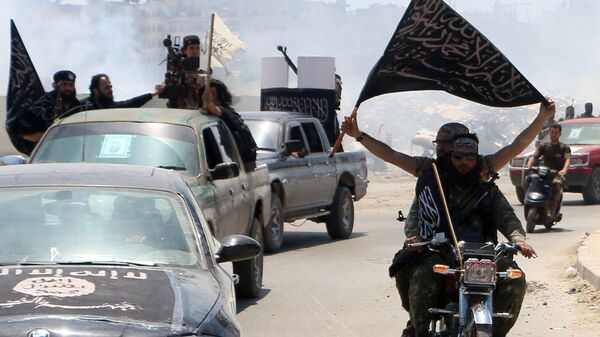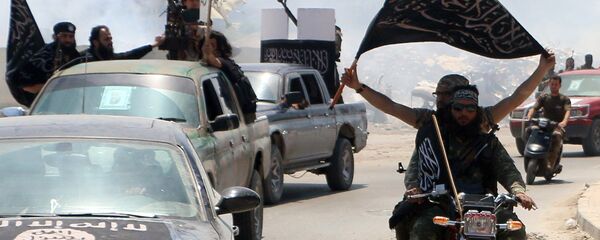WASHINGTON (Sputnik) — Zakheim was in Germany on the day of the attack where he was loaded into a bullet-proof car and ushered to the command information center to repeatedly watch events unfold on a massive screen. All US senior officials overseas then rendezvoused in England and were flown to Andrews air force base for a meeting with President George W. Bush at 6 p.m. on September 12.
"I think they [al-Qaeda terrorists] are definitely degraded, but they are different," Zakheim noted. "The real challenge for us [the United States] and for our friends and allies and countries all over the world is that they have these spinoffs, they’ve got these copycat organizations."
The United States must focus on ridding the world of these terrorist groups, Zakheim stressed, but it will take time and a significant level of cooperation to achieve this aim.
Several leading US generals, Zakheim observed, have said Islamic terrorism is a challenge that is "generational," consisting of both Sunni groups like Daesh and al-Qaeda, in addition to Iranian-sponsored terrorist entities representing the Shia side of the equation.
"People all over the world are threatened by this kind of extremism that is religiously-motivated," he claimed. "It is a perversion of their religion, but it’s religiously-motivated."
With respect to the presence of al-Qaeda-linked groups operating in Syria, Zakheim said the United States has tried for years to differentiate them from the legitimate opposition to prevent arms from falling into the wrong hands.
"I think we did learn our lessons from the mujahideen in Afghanistan, that if you arm people indiscriminately they are going to point their guns at you as soon as they can," he argued.
One of the bigger problems, the former senior Pentagon official explained, is that the true "moderates" in Syria are not the strongest fighters, hence the situation is complicated.
"But in this case I think the [Obama] administration — and I am no fan — is doing what it can in a very difficult environment [in Syria]," Zakheim suggested.
In terms of defending against a similar high-profile attack, he said the United States has made tremendous progress since 9/11.
"I think having a [US] Department of Homeland Security, which focuses on this to the exclusion of all else because that is their job, already is an indication of how far this country has come," Zakheim added.
Zakheim said there was already a plan in place to redesign the Pentagon before 9/11, but it was accelerated and the portion that was hit was literally completed exactly one year later.
Fifteen years on, Zakheim noted, the attacks on September 11 still resonate because it represents the Pearl Harbor of his and the next generations.
"This was an attack on American territory — that is something that we are very much not used to," Zakheim concluded. "It created a degree of security concerns that changed the way this country operates."
Dov Zakheim served as US Under Secretary of Defense (Comptroller) and Pentagon Chief Financial Officer from 2001 to 2004. He was also US Deputy Under Secretary of Defense for Planning and Resources from 1985 to 1987, among other senior posts in both the federal government and private sector.



